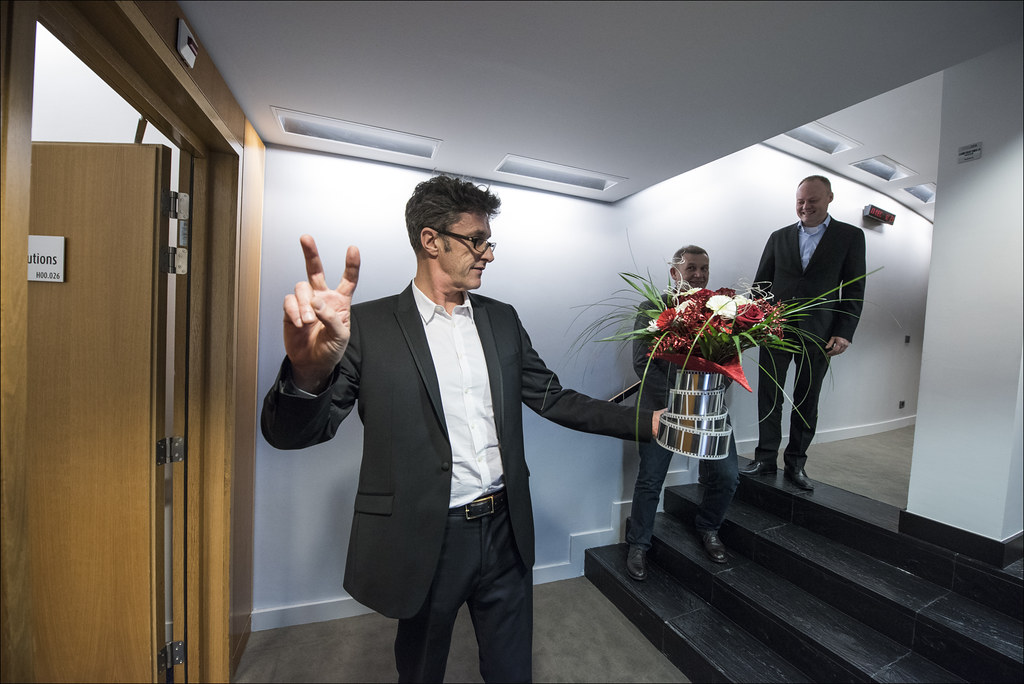Paweł Pawlikowski’s Cold War can only be described as an epic story of love, suffering and music. The film spans 15 years in the postwar era, presenting Wiktor’s (Tomasz Kot) and Zula’s (Joanna Kulig) relationship as their situations and locations change. The silky-smooth black-and-white cinematography and the poignant acting have won the film great acclaim. However, what must be the most striking element of the film is its music, particularly how it takes on a life of its own. Indeed, music is as much a character in the film as the protagonists are because it does more than merely accompany the action of the film. It becomes the director’s medium of narration and the true marker of development.
Equivalent to the characters’ growth throughout the elliptical span of the film, the music achieves something resembling a character arc too. The evolution of the song “Dwa Serduszka” (“Two Hearts”), often referred to as the leitmotif of the film, exemplifies this arc in all its eclectic adaptations. Initially sung by a peasant girl, it is soon reworked into the Mazurek troupe’s folk production. As the setting switches to Paris, it transforms into a jazzy piece for Zula to sing, then is rewritten into French to better suit their new audience. Not only does the song chronicle the movement across the Iron Curtain, but the love story itself. The lyrics strongly resonate with the bittersweet love between Wiktor and Zula, and the forces that drive them together and apart. Music is what makes and unmakes their relationship over the years.
Furthermore, Cold War’s music offers a commentary on politics during postwar Poland. The Lemko folk song, and the way in which Kaczmarek (Borys Szyc) discriminates against the language, alludes to the ethnic cleansing in Operation Vistula in 1947. Music suffers its own oppression at the hands of the communist regime in Poland. We see how Mazurek’s songs are manipulated into a propaganda tool, most notably in the scene where a banner of Stalin rises from behind them. The regime’s corruption of the music’s cultural purpose becomes the catalyst for Wiktor’s choice to defect and move to Paris.
The choice to transition the genre towards jazz is also interesting here, considering that jazz was censored under the regime for being too Western. As the character’s establish themselves in Paris, their newfound freedom is reflected in the change and experimentation in the musical genres.
Contrarily, the more upbeat tunes tend to signify the utmost low points in the characters’ lives later on in the film. The South American influences, as in “Baio Bongo”, are a counter to Western influences in Poland. So, when Zula sings this song after her return, she finds herself back under the oppression of the regime, ridiculed by its cheery rhythms and conformity to the communist ideals. Similarly, “Rock Around the Clock” represents a moment of great distance between her and Wiktor in Paris, while she dances drunkenly and he does not join her.
There is also something to be said about how ideas of authenticity and cultural identity are interwoven with the film’s music. Just as Wiktor’s defection was caused by the corruption of Mazurek’s purpose, Zula’s breaking point also comes at a moment where she feels that the songs she sings have lost their authenticity to her. She despises the French translation of “Dwa Serduszka” because it has lost its meaning, and when recording the song “Loin De Toi” Wiktor comments on her spiritless singing. Despite the freedom that Paris can offer her music, the culture that was integral to the songs has been lost. Wiktor seems to lose some sense of his musical identity too, which manifests itself through his improvised performance. The variety of musical genres and influences that the music accumulated throughout the film seem to collide in a clumsy and muddled piano piece as he breaks down. Thus, both the communist regime and the west appear to damage their cultural identities.
While there are many films that explore life under brutal regimes, Cold War’s complex musical personality reveals the story in an uncommon manner. It brings Polish tradition and history to the spotlight, especially more overlooked elements of its culture. It is hard not to praise Pawlikowski for how he expands the potential of music by using it more as a character than an enhancing addition.
“Paweł Pawlikowski receives the Lux prize for his film Ida” by European Parliament is licensed under CC BY-NC-ND 2.0.

